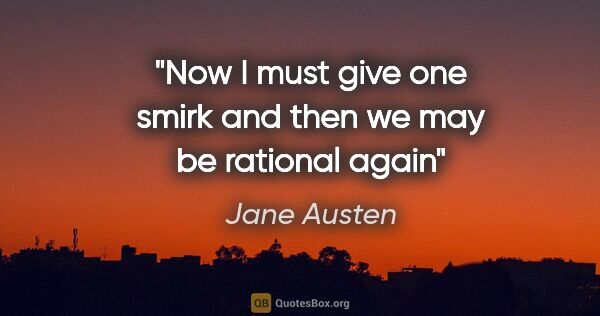Rationalism Quotes (page 13)
There is something feeble and a little contemptible about a man who cannot face the perils of life without the help of comfortable myths. Almost inevitably some part of him is aware that they are myths and that he believes them only because they are comforting. But he dare not face this thought! Moreover, since he is aware, however dimly, that his opinions are not rational, he becomes furious when they are disputed.
Bertrand Russell
Born as the raising to the nth power of that initial (and rational) waste that is sports recreation, sports chatter is the glorification of Waste, and therefore the maximum point of Consumption. On it and in it the consumer civilization man actually consumes himself (and every possibility of thematizing and judging the enforced consumption to which his is invited and subjected).
Umberto Eco
O shame to men! Devil with devil damned. Firm concord holds, men only disagree. Of creatures rational, though under hope. Of heavenly grace: and God proclaiming peace, Yet live in hatred, enmity, and strife. Among themselves, and levy cruel wars, Wasting the earth, each other to destroy: As if (which might induce us to accord)Man had not hellish foes enough besides, That day and night for his destruction wait.
John Milton
As a human being, you have no choice about the fact that you need a philosophy. Your only choice is whether you define your philosophy by a conscious, rational, disciplined process of thought and scrupulously logical deliberation - or let your subconscious accumulate a junk heap of unwarranted conclusions, false generalizations, undefined contradictions, undigested slogans, unidentified wishes, doubts and fears, thrown together by chance, but integrated by your subconscious into a kind of...
Ayn Rand
The psychological dangers through which earlier generations were guided by the symbols and spiritual exercises of their mythological and religious inheritance, we today (in so far as we are unbelievers, or, if believers, in so far as our inherited beliefs fail to represent the real problems of contemporary life) must face alone, or, at best with only tentative, impromptu, and not often very effective guidance. This is our problem as modern, "enlightened" individuals, for whom all gods and...
Joseph Campbell
Our mania for rational explanations obviously has its roots in our fear of metaphysics, for the two were always hostile brothers. Hence, anything unexpected that approaches us from the dark realm is regarded either as coming from outside and, therefore, as real, or else as a hallucination and, therefore, not true. The idea that anything could be real or true which does not come from outside has hardly begun to dawn on contemporary man.
Carl Jung

emotion clouds the rational, and many perspectives guide the full reality. To view current events as a historian is to account for all perspectives, even those of your enemy. It is to know the past and to use such relevant history as a template for expectations. It is, most of all, to force reason ahead of instinct, to refuse to demonize that which you hate, and to, most of all, accept your own fallibility.
R. A. Salvatore
If men will permit themselves to think, as rational beings ought to think, nothing can appear more ridiculous and absurd, exclusive of all moral reflections, than to be at the expence of building navies, filling them with men, and then hauling them into the ocean, to try which can sink each other fastester. Peace, which costs nothing, is attended with infintely more advantage than any victory with all its expence. But this, though it best answers the purpose of Nations, does not that of...
Thomas Paine
Morality is neither rational nor absolute nor natural. World has known many moral systems, each of which advances claims universality; all moral systems are therefore particular, serving a specific purpose for their propagators or creators, and enforcing a certain regime that disciplines human beings for social life by narrowing our perspectives and limiting our horizons.
Friedrich Nietzsche
Eiffel saw his Tower in the form of a serious object, rational, useful; men return it to him in the form of a great baroque dream which quite naturally touches on the borders of the irrational ... architecture is always dream and function, expression of a utopia and instrument of a convenience.
Roland Barthes
